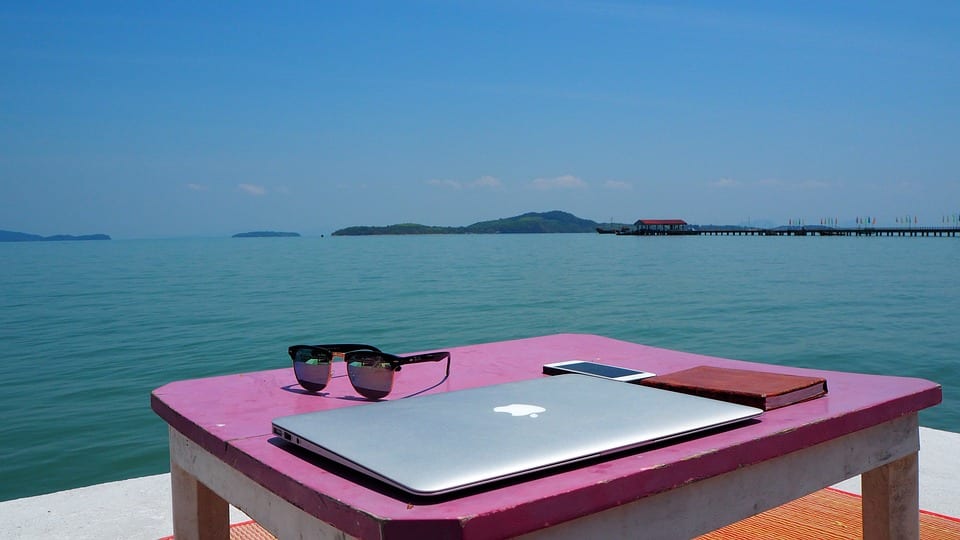
How to Be Successfully Self-Employed Abroad
The allure of working abroad freelance is undeniable. With the Global Business Monitor Report 2019 indicating that SMEs are apprehensive regarding Brexit, who wouldn’t want to escape the 9 to 5 and type up articles next to the ocean or sort out finances overlooking a sun-drenched city? What’s more, you have the opportunity to become your own boss. Being skilled at a job where you can solely work from a laptop means you could be writing copy for a UK-based company whilst sitting on a rainforest-enveloped balcony in Costa Rica.
Working Overseas Freelance
It is perfectly legal to travel and work abroad. Which every country you visit, you will simply need to ensure you apply for the correct working visa and check whether you need a license. Generally speaking, obtaining a visa can take around 3 to 4 months so make sure you are always ahead of the game if you don’t plan on settling in one place for too long.
Typically, to acquire a working visa you will need a written job offer from a company in the country you are moving to. For self-employed expats, this isn’t achievable. Many countries that are rich with digital nomads have picked up on this and have created special visas and classifications for freelance workers from overseas.
Freelance visa costs vary from country to country but tend to fall between £80 and £350.
If you are heading to a country where your spouse is a resident you can select a visa based on your marriage to that person. As long as they are living in the country with you, most will allow you to freelance and take up work opportunities.
Self-Employed Job Opportunities
Understandably there are some jobs that take a little more than a Wi-Fi connection and a laptop. More often than not, most freelancers abroad tend to be in content production:
- Photographers
- Copywriters
- Journalists
- Writers
- Editors
- Graphic designers
- Web developers
- Software designers
- Sound and video editors
- Translators
- 3D modelling and CAD designers
Length of Stay
Most countries allow you to stay for up to three months on a regular travel visa. If you’re only staying for up to 12 weeks you are considered a traveller and do not need to apply for any type of working visa. You are welcome to do freelance work in most countries on a travel visa for this time period, but it is worth double-checking with the government bureau of your new location.
The majority of countries require you to apply for a freelancing visa around the six-month mark, but this can vary. You will need to register your businesses and pay income taxes to your country of residence just like you would back at home.
Utilise Co-Working Spaces and Cafes
One of the most exciting parts of being self-employed abroad is the opportunity to meet like-minded individuals in digital nomad cafes and co-working spaces. Whilst working from home is great if you fancy wearing your comfiest clothes and not having to smell other people’s lunches, these creative hubs are also a great place to share ideas and even pick up new business opportunities.
Co-working spaces, particularly in expat-rich destinations such as Bali, Thailand, and Australia are now commonplace as freelance digital working has become more commonplace. Whilst they may look like a trendier version of a regular office, there are usually large working spaces, free Wi-Fi and enough coffee and tea to sink a ship. You can pay a monthly fee to access the space, usually contract-free, and hop in and out as you wish.
Top Tips for Freelancers Abroad
- Have a website dedicated to your services
- Have business cards printed
- Utilise online sites such as Upwork and SimplyHired
- Make sure you do not undercharge for your services
- Have contract and invoice templates set up
- Make sure you keep a clear diary and schedule
- Encourage your clients to leave reviews
- Invest in the best international insurance for digital nomads
If you’re employed overseas, cashless health insurance is our corporate offering.
